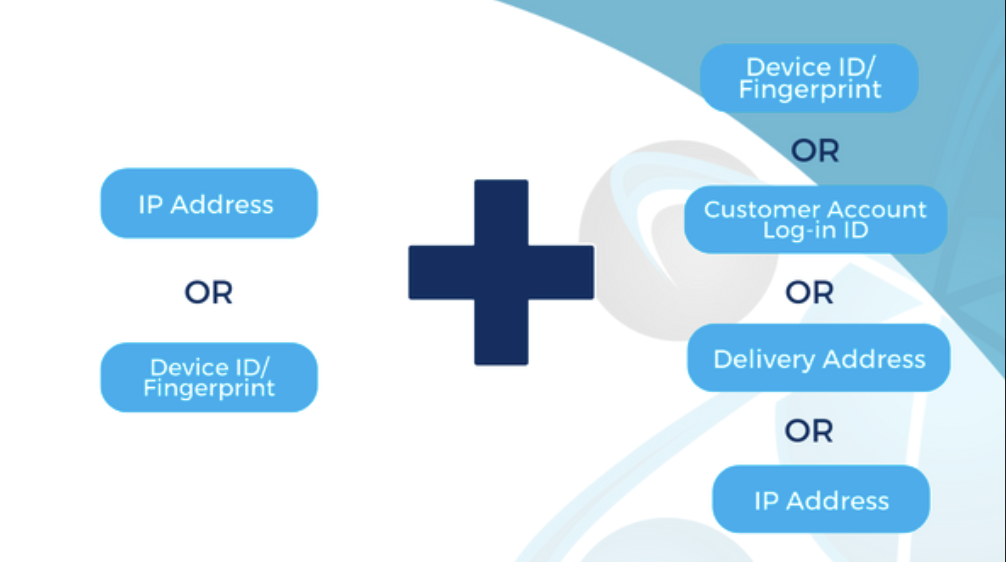Visa Compelling Evidence 3.0
Disputes are set to cost merchants $100bn in 2023 (Source: Merchant Fraud Journal, 2022), industry issues such as first-party misuse create unnecessary disputes resulting in operational costs and lost revenue fueling these losses for merchants. In 2022, Visa announced an update to compelling evidence rules making it simpler for merchants to combat first-party misuse, creating a fairer payments ecosystem.
The Merchant Risk Council (MRC) is pleased and proud to have two distinguished panelists from Visa to discuss upcoming and merchant friendly Visa Rule Changes. Visa Executives, Natalie England, Senior Director, Direct Global Risk Lead and Mark Woelfer, Senior Director, Post Purchase Solutions will chair a fireside chat on Compelling Evidence 3.0.
This fireside chat will discuss the rule, updates since its announcement, technical implementation for pre-dispute through Order Insight, and also explore the various use cases of this evolved compelling evidence rule.
To assist in the backdrop of this presentation, I’ve included my notes from a conversation I had with these two fine executives.
What was the thought process over the introduction of Compelling Evidence 3.0?
Digital transactions are outpacing the growth of card present transactions. This change was accelerated by the pandemic and is evident in app-initiated, recurring, IoT and buy online, pick up in store transactions. These changes are causing an uptick in unrecognized transactions which may be initially misidentified as fraud.
Additionally, through changing consumer behaviors and card usage, we are seeking to ensure that a pattern of cardholder abuse does not take hold. Instead, we seek to solve through rules and products, options for merchants to take advantage of and minimize both misidentified fraud and potential cardholder abuse in the chargeback rules.
Describe the thought process which brought about the Rule Change
Building on the answer noted above, Visa established a working group with Merchants and issuers in order to formulate the Rule change. We wanted to understand what would be necessary and available for a merchant to validate prior cardholder participation as well as what would be required and available to support the notification of a misidentified fraudulent transaction.
Describe how the Rule change will impact Pre-Disputes? Post Disputes?
Visa has increased attention to resolving disputes before they are actually classified as a dispute within Visa. These pre-disputes are meant to allow the parties to share details regarding the transaction before the dispute is initiated. Compelling Evidence 3.0 is aligned with Visa’s intentions to encourage the parties to share details during the pre-dispute phase.
Merchants utilizing Order Insight allows them to share, in an automated and near real time basis, information with issuers to confirm the legitimacy of a transaction and stifle buyers remorse and assuage misinterpretation surrounding unclear statemented activity. As a part of the Compelling Evidence rule change, Order Insight will be modified to allow merchants the ability to supply Compelling Evidence 3.0 data elements to assist issuers in determining if a transaction is truly a dispute in the pre-dispute phase.
Because participation in Order Insight is voluntary, Visa is also modifying its standard dispute process through Visa Resolve Online (VROL) to allow any merchant the ability to participate in supplying CE3.0 data elements. The difference being, if a merchant chooses not to participate in Order insight, then the exchange of information will occur after the dispute is initiated and the merchant will need to supply to their acquirer/processor the Compelling Evidence data through the pre-arbitration process.
Define Qualified Transaction Data in the context of Compelling Evidence
Qualified Transaction Data (QTD) is comprised of two parts:
- The first piece is the establishment of a historical footprint between the cardholder and the merchant. Evidence the cardholder purchased goods or services from the merchant and it was not reported as FRAUD.
- The second piece identifies if the key Compelling Evidence 3.0 data elements match across both the two historical transactions and the transaction being disputed.
The diagram below illustrates the data criteria with the note that the data must be two separate items.

Compelling Evidence Applies to Consumer Dispute, CNP, 10.4 Fraud Chargebacks only.
Is this Rule applicable to both domestic and international chargebacks?
Yes, both.
Will these count towards a merchant’s chargeback count and fraud ratio?
- Pre-disputes are not chargebacks and therefore do not impact a merchant’s chargeback or fraud ratio.
- If an actual dispute is initiated, it will count towards a merchant’s chargeback ratio but NOT their fraud ratio.
To note, both cases above where CE3.0 qualification takes place, the issuer is liable for the transaction amount.
What difficulties do you anticipate with the roll-out?
This mainly pertains to merchant availability of the CE3.0 data elements (IP Address, Device ID, Shipping Address, Account ID). As noted in the rules, two of these (with IP Address and Device ID being at least one of them) have to be supplied and matched across the three transactions (transaction being disputed and 2 historical transactions). Are the merchant systems gathering and storing these? For how long? Are they accessible? If the data is not readily available in the merchant systems and sent to Visa, CE3.0 qualification cannot take place.
Author: Ken Musante, Commercial Director, San Francisco, Payments Consulting Network
Ken has over 30 years of industry experience and connections within the U.S. Payments industry. He has a deep understanding of the infrastructure and pricing supporting the payments industry—specifically the technology, financial institutions, card brands, processors and vendors.
***
If you found this article helpful and would be interested in reading similar articles by our consulting team, please subscribe to our newsletter.
Are you interested in reading articles on a particular payments topic, company, payments industry executive or author? Click the search icon, it’s that magnifying glass on the top right-hand side of the website, and type in the keywords that interest you. You will then be presented with a list of any articles that match your search criteria.
***
MRC hosted the MRC Card Networks Changes Forum, a two-day forum that happened in 22 and 23 February 2023 with Visa and Mastercard on the topic of card network updates. This is a complimentary, two-part webinar series, exclusively for MRC members.
Payments Consulting Network was a media partner of MRC Vegas 2023.




